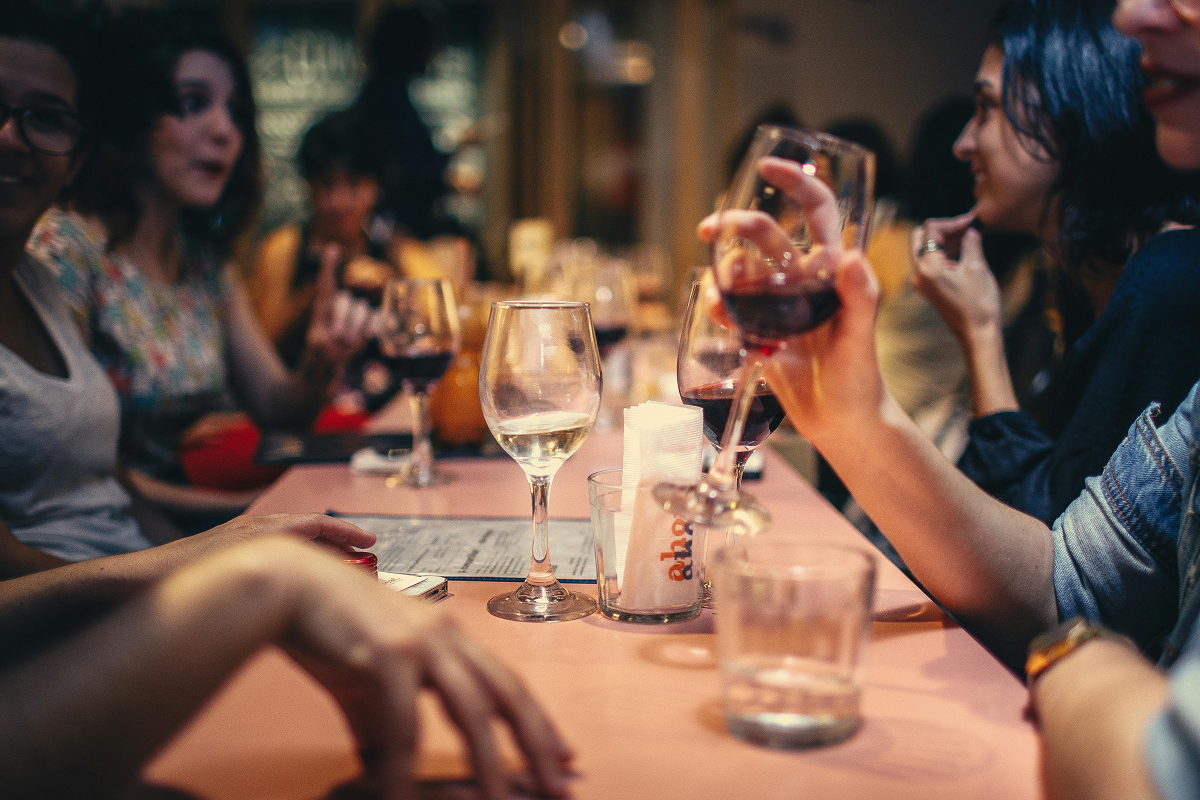
On this page: |
While the safest option may be to avoid both drinking and going to places where alcohol is served, there are ways to have a safe night out that involves alcohol. Planning to drink moderately is one step toward a safer night out. Planning a safe way to get home before even leaving the house is another step. But making informed decisions about the clubs and bars you go to, paying attention to the surroundings once inside, and staying in the company of trusted friends can also go a long way toward lowering the risk of alcohol- related harms.
If you choose to drink
If you are planning to drink when going out, it's a good idea to avoid overdoing it. Drinking too much puts you at risk of making bad choices that may seem fun or funny at the time but may cost you afterwards in terms of your health, relationships, money or the law. Here are some tips for drinking moderately:
-
Set limits and stick to them
-
Drink slowly
-
Alternate alcoholic and nonalcoholic drinks
-
Eat before and while drinking
-
Stick to one substance at a time (alcohol can magnify the effects of cannabis and some other drugs in unpredictable ways)
According to Canada's guidance on alcohol & health
-
It is best that youth delay drinking until as late as possible.
-
For adults, both men and women, two drinks per week is considered low risk for experiencing adverse health effects.
Deciding where to go
When deciding which bars or clubs to go to, it's best to opt for places that offer the least risks. It's safest, for instance, to choose establishments that are located away from clusters of other bars and do not allow over-crowding. A lot of the risk around alcohol is related to consuming it in crowded places. And it's a good idea to select an establishment that puts an effort into providing a safe environment. Incidents of aggression and assault are most often linked with places that ignore standard serving and safety practices.
Recognizing potential risks and being aware of practices associated with safer establishments can help you to minimize alcohol-related harms to yourself and your friends. Here are some things to look for when choosing a bar or club.
Outdoor environment. Take a good look at the outside area of the establishment. When a bar or club has clean, clear sidewalk space and queuing areas, patrons are less likely to suffer falls and injuries related to line-ups and mobility problems. Fully-lit outdoor areas deter people from engaging in disorderly behaviour, while allowing patrons to see more of their surroundings and feel safer when they are heading home. And where security cameras are present, there tends to be less misconduct and violence outside the establishment.
Indoor environment. Look around inside, paying attention to the layout and lighting. Bars or clubs with multiple floors (as opposed to a single floor) make it easier for customers to see and be seen by staff in the event a conflict erupts in a crowd. Clear pathways and exits make it easier for people to move through an establishment without bumping into others and potentially triggering an altercation. Comfortable lighting, seating, sound and ventilation keep patrons calmer and less likely to become frustrated. Sufficient, well-lit washrooms reduce patrons' risk of becoming victims of assault and other crimes.
Servers and security staff. Observe the way staff members conduct themselves and treat customers. Staff who demonstrate specialized skills, such as the ability to defuse conflict and tactfully stop serving people when they've had too much to drink, are more likely to be associated with places that put an effort into training and safety practices. Door security staff who regularly check identification are more likely to work for bars or clubs that value both the law and customers.
Safe transportation options. Check for the availability of ways to get home safely. Establishments that have accessible telephones and taxi services, offer safe-ride options, or are close to major bus routes, show they put emphasis on helping their customers to plan a safe way home.
Staying in the company of friends
Minimizing the risk of alcohol-related harms is not just about where you go. Who you go out with and who you might link up with also affect the potential for adverse consequences. When going out, stay in the company of trusted friends. That way, you have someone to ask for help if a situation happens that feels unsafe or unpleasant. It's also important to be aware of where security staff are situated in case you need assistance.
For more information
www.heretohelp.bc.ca | www.cisur.ca
About the author

The Canadian Institute for Substance Use Research, formerly CARBC, is a member of the BC Partners for Mental Health and Substance Use Information. The institute is dedicated to the study of substance use in support of community-wide efforts aimed at providing all people with access to healthier lives, whether using substances or not. For more, visit www.cisur.ca.
